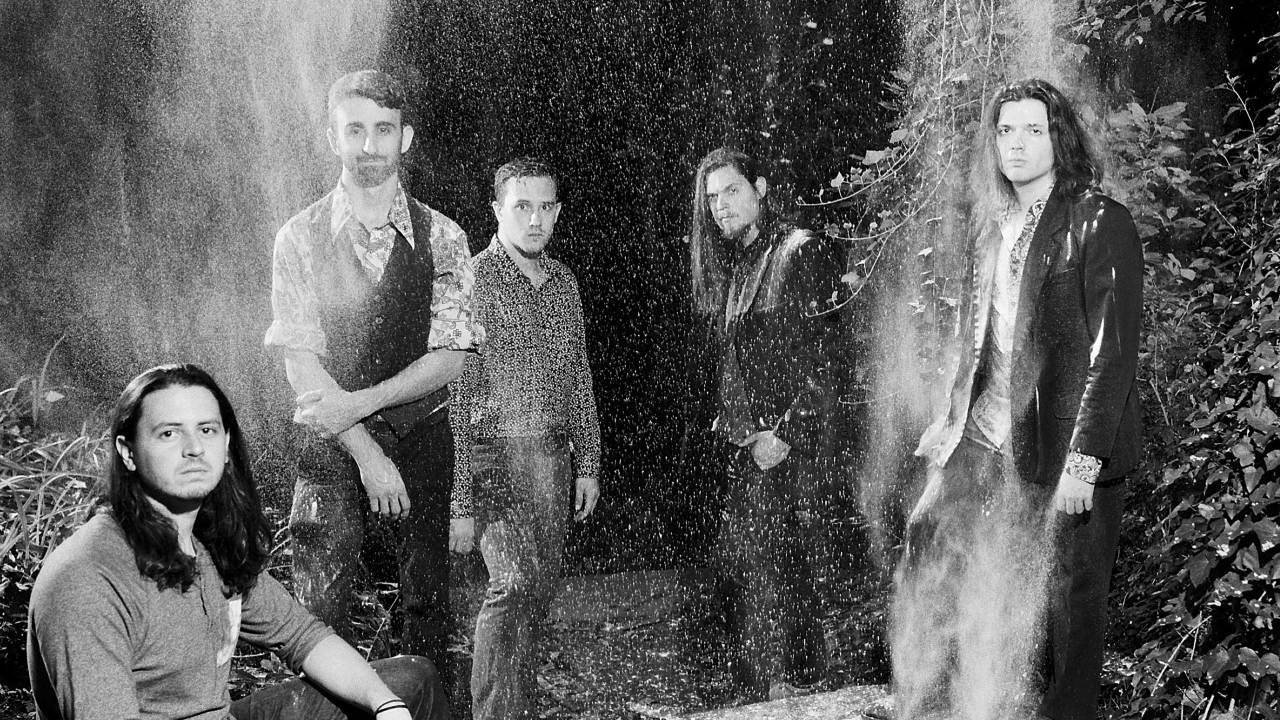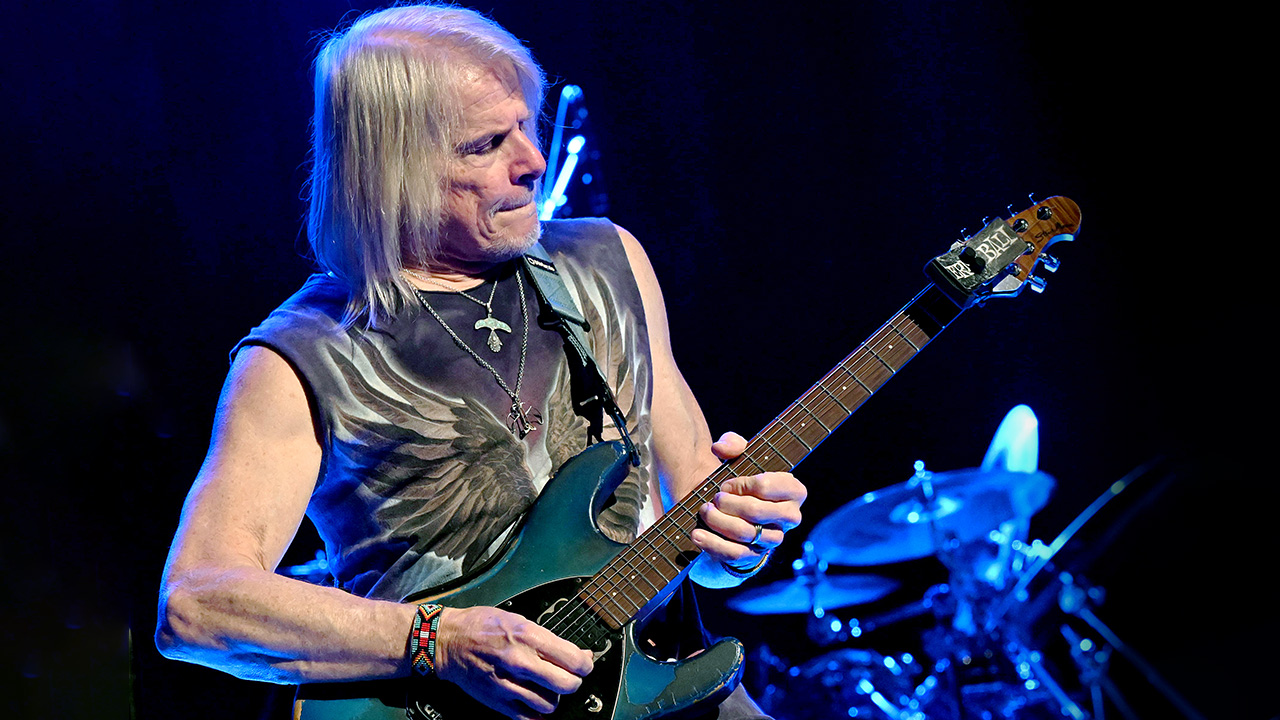Grappling With The Past
Led by two brothers, The Tea Club hail from the States and specialise in classic 70s prog sounds with a modern twist.

“Well, we’re pretty dramatic people,” laughs The Tea Club’s Dan McGowan when questioned about the sense of theatre that saturates their music. “I’ve loved film scores for a long time and really loved the music in 90s video games, which were so dramatic and emotional. In fact, I struggle to write something that isn’t epic or dramatic and it’s almost like I don’t like it unless it has that.”
It’s that internal, demanding quality control that has aided The Tea Club’s rapid development over the last seven years. Initially centred on the writing partnership of brothers Patrick and Dan McGowan, the pair passed through a number of high school bands before settling on a line-up to record their debut album, General Winter’s Secret Museum, in 2008. Musically, their influences are pronounced, with a clear adoration of the 70s prog pioneers at the forefront of their sound.
“The first band I fell in love with was King Crimson and that band kind of mystified me,” confirms Pat. “It was the perfect time for me and I just got hold of anything of theirs that I could find. So that opened up a whole world of music for me. I then discovered all the 70s bands and got into Yes, Genesis, Magma and Van der Graaf Generator. I was listening to that as a teenager when my friends were all listening to Metallica. But I also love some of the late-90s bands like …Trail Of Dead and The Flaming Lips too.”
“We all have a shared taste in 70s prog and some modern stuff,” adds keyboard player Joe Dorsey. “But everyone in the band will bump heads with someone over one or two bands. We make people listen to stuff they normally wouldn’t listen to. For example, our drummer [Dan Monda] isn’t a big Magma fan but we make him listen to it all the time. We all meet every weekend and practise but in the night we’ll stay up late and push each other to listen to some new stuff they would normally hate.”
Although forcing fellow band members to endure music they openly loathe may sound like an SAS torture training technique, the results have been stirring. For all the avowed love for the aforementioned acts, The Tea Club have an endearing and distinct sound that’s far removed from some of the substandard, 70s imitator acts. It may be bold to suggest it, but had this band existed in that era, it’s likely they would now be revered alongside those pioneers. Critically, rather than merely relying on a trusted blueprint, a recurring theme they’re keen to stress is an internal resolve to keep maturing their music.
“The thing that’s always in the back of our mind is that we’re trying to get better with each album and song,” says Pat. “There’s a constant striving to improve and progress. We really try to experiment, push ourselves into places we wouldn’t normally go and try to avoid being formulaic about things. We like to throw unexpected things into the mix and see what happens. When we’re writing, we know we’re on to something when we get that chill down the spine. We might be playing around with a riff or a chord change and when we stumble on something and get that feeling, we know we’re heading down the right path. That sort of informs our writing process.”
Those spine-tingling moments are numerous on their latest album, Grappling, where instead of relying on the writing skills of the McGowan brothers, there has been a collaborative approach that has proved fruitful: there’s a cohesion that has far exceeded the talent shown on previous releases. Indeed, that attitude of trying things for the sheer hell of it led to the creation of one of the tracks, as bassist Jamie Wolff explains.
The latest news, features and interviews direct to your inbox, from the global home of alternative music.
“The song Dr. Abraham was originally two separate songs and it was Pat who suggested we try to smash them together,” he says. “That sounded really inappropriate at the time, but we tried it. Of course, we had to adapt it a bit, but it really worked and that’s an example of us being open to different approaches.”
On stage, there are similarities to Genesis, mostly due to frontman Dan McGowan’s spoken, storytelling introductions to the songs. It’s something he admits the rest of the band aren’t necessarily always keen on, but he believes it’s a perfect opportunity to explain the lyrical concepts to the audience.
“I do try to add a theatrical element because the stories are very abstract, much to the chagrin of the rest of the band,” he says. “The lyrics make sense to me but not to a lot of other people and I kind of like that. I like to be creative in every aspect and feel it’s a missed opportunity if I don’t do it. It probably goes down better with those in the audience who aren’t progressive fans. They’re not there judging or comparing as there’s no point of reference for them. We aren’t trying to emulate prog bands from the 70s but just trying to engage with the audience’s imagination.”
“Thankfully our music can transcend a lot of genres,” adds Pat. “We worked hard on our presentation and trying to make it a very engaging artistic experience. So we can get away with playing some of the trendier venues because we’re kind of like that cool, weird band, you know? When the pioneers of prog in the 70s were coming on the scene, they didn’t know they were prog bands – they were just making interesting music. I think that attitude is coming around again.”
Grappling is out now (self-released). For more information, see www.theteaclub.net.
